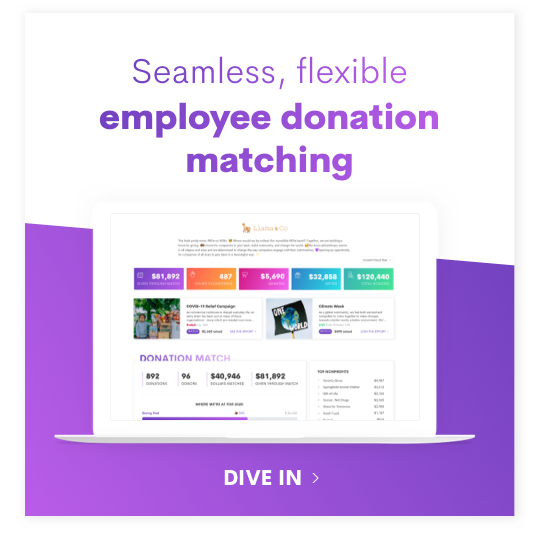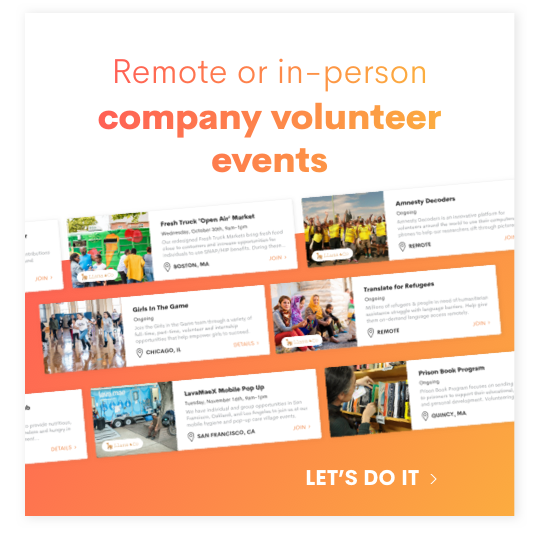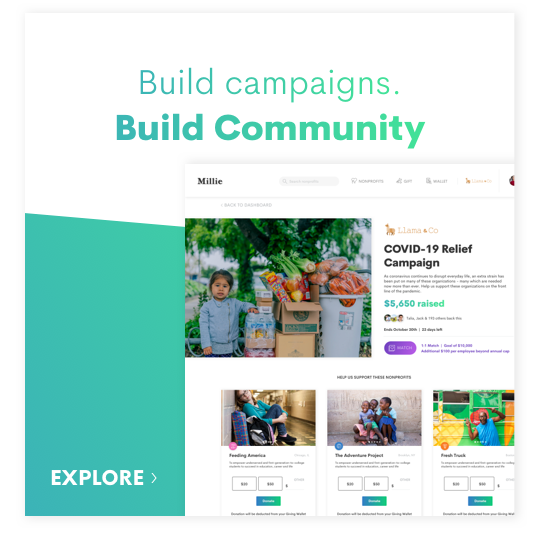This time next year, millions of Americans will be getting ready to cast their ballots in the 2024 Presidential Election. Compared to a couple election cycles ago, companies will play a much bigger role in encouraging participation and providing resources to employees and customers.
As just one example, the membership of Time To Vote (an initiative to ensure workers have paid time to vote) grew by 400% since its founding in 2018 and now includes over 2000 companies.
What’s behind this increase? Here are some driving factors:
- There is consensus that business should be involved in strengthening democracy because businesses benefit from a stable economy and strong public institutions.
- 81% of business leaders think that businesses should act to protect democracy and ensure safe and fair elections, according to Morning Consult.
- The Civic Alliance finds its member companies outperformed their peers on the S&P 500, suggesting positive investor and market response to companies engaging on democracy issues.
- It’s well established that Gen Z and Millennials prioritize social impact, and civic participation is no exception.
- Employees are looking to their employers for resources that help them get involved in their communities – and they want companies to walk the walk with actionable steps, not merely pay lip service.
- BIPAC’s latest survey finds a rise in demand among younger employees for election information.
- Companies realize they can have an outsized impact on voter participation, compared to traditional approaches.
- While trust in institutions like media and government wanes, employers consistently rank highest on trust indexes.
- Unlike political campaigns, which target the voters most likely to vote for their candidate, companies reach broad audiences of less likely voters – like young people and historically disenfranchised groups.
- Companies also have built-in channels for communicating with employees, so they can break through the noise with encouragement and information.
- Companies are drawing clear connections from democracy to their broader mission and corporate responsibility goals.
- For example, companies that care about sustainability know the impact of environmental policy and leadership on those efforts.
Civic participation also positively impacts physical and mental health, making it a no-brainer for healthcare and wellness companies..
It’s clear that supporting voter participation for your employees is a win-win: It’s good for society and the bottom line; it advances your employee engagement and community-building goals; and it builds brand reputation and trust.
And as a cautionary note: With this paradigm shift in corporate-led voter engagement, there’s increasing risk to not getting involved.
Global Strategy Group finds surveyed consumers described companies who took a position on a political or social issue as “trustworthy,” “mission-driven,” and “bold;” whereas companies that never took a position were described as “out-of-touch,” “selfish,” and “unpatriotic.”
As companies continue to step up their involvement and establish this as the norm, those who don’t have a concrete strategy here will stick out.
So how can your company support your employees in the 2024 election cycle?
First, a quick note on timing:
If your team hasn’t already launched your efforts here, Fall 2023 is the best time for your company to start fleshing out your plans for the 2024 election cycle.
While the General Election in November 2024 seems far off, keep in mind that Primary Elections kick off at the beginning of next year, with registration deadlines as early as this January. In these lower-salience, lower-turnout elections, your company can have an even bigger impact. Starting now makes it easier to secure buy-in and budget.
What are concrete ways for your company to support democracy?
Think about these three buckets:
1. Your company can help reduce barriers to voting by providing access and information.
As trusted messengers who also shape their employees’ schedules, companies can have a big impact in helping people overcome the “microbarriers” that commonly get in the way of voting. They include not understanding the process, missing registration or ballot request deadlines, feeling confused or overwhelmed, or not having time in their day to go vote.
- Strategies:
- Creating flexible time policies like PTO to vote, alternate hours, or a “no meetings day” on Election Day.
- Encouraging voters to learn about absentee voting and early voting options in their state, which reduce time pressure on Election Day itself.
- Providing educational resources, like informational sessions and access to digital tools that help voters make plans and get reminders about deadlines.
2. Your company can encourage and celebrate participation in elections.
When voting feels fun and social, people are more likely to do it. Research shows that events like “Parties at the Polls” have a statistically meaningful impact on turnout. This helps create a culture of participation and is also a counterweight to polarization and anxiety that can accompany election cycles.
- Strategies:
- Promoting Civic Holidays like National Voter Registration Day and Vote Early Day on your corporate calendar and communications channels.
- Host “parties at the polls” or other celebratory events on or leading up to Election Day (or contribute space/supplies to other organizations that are hosting)
- Providing opportunities for employees to get ready to vote together, like a voter registration drive or voting plan-making session.
- Encouraging employees to share “I Voted selfies” or update their status with an “I Voted” emoji on Slack/Teams — another strategy proven to increase turnout through social norming and visual reminders.
3. Your company can help strengthen our country’s democratic infrastructure.
Zooming out, companies can play an important role in our systems and institutions. Through resources and voice, you can help improve how elections are run and ensure that more Americans can easily exercise their right to vote.
- Strategies:
- Encouraging employees to sign up as pollworkers (through organizations like Power The Polls) so there are enough people to keep polling places open and running smoothly.
- Connecting employees to volunteer and donation opportunities with organizations like Vote Riders that increase voting access.
- Signing onto public statements for pro-democracy reforms and being public with your involvement to continue to uphold this as the norm.
About the Author
Jess Riegel is the Co-founder and CEO of Participant, an impact tech company that helps organizations design and run civic engagement initiatives through a nonpartisan tool called Motivote.
Jess built the resource to solve a problem she first faced herself: Despite holding a Bachelor’s in Political Science and Master’s in Public Administration, she never voted in non-presidential elections – a discrepancy that inspired her to research the behavioral psychology of voting at NYU’s Wagner School of Public Service. Putting her research into action, her team has now supported 50+ companies, colleges and nonprofits nationwide with increasing voter participation using proven nudge strategies.
Previously, Jess was a Teach For America corps member who taught first grade and then supported organizations like the Rockefeller Foundation, Kinvolved and Cause Strategy Partners with designing effective programming and measuring impact.



